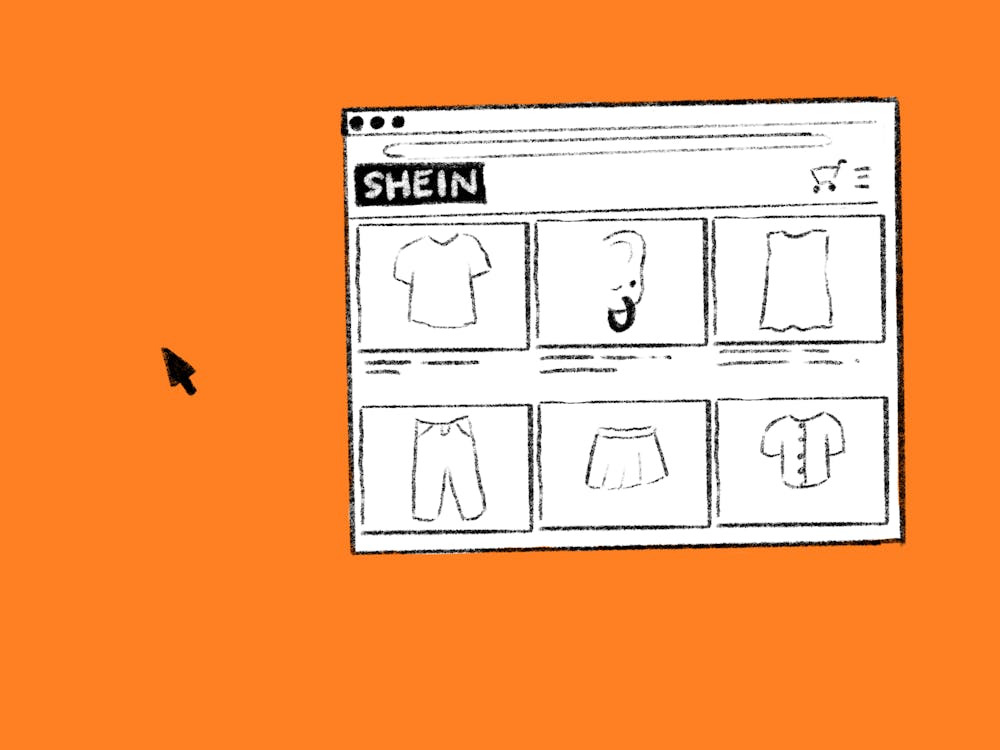In its second scandal in recent news, online retailer SHEIN came under fire after photos of a swastika necklace sold on the brand’s website went viral. The necklace, which was marketed as a “Metal Swastika Pendant,” has since been taken down—but not before screenshots of the listing made waves on social media.
The backlash was almost immediate: thousands of people took to social media to condemn SHEIN, demanding that the necklace be removed from its website and calling for other users to boycott the brand. In an Instagram post that has garnered almost 100,000 likes, fashion influencer Marissa Casey Grossman shared a photo necklace with the caption: “HOLY FUCK. I have zero words. I will NEVER be buying from @sheinofficial @shein_us EVER again. This is a company that I’ve bought from so much over the years and to see this is ABSOLUTELY disgusting. I didn’t believe this when I saw it—so did a simple search on their site. And, there it was.”
The brand later issued an apology stating that while the necklace was intended to represent the Buddhist swastika–a symbol of good luck for Hindus, Buddhists, and Jains—rather than a Nazi swastika, and there was “simply no excuse for [their] lack of sensitivity” in selling it.
“We made a gigantic mistake by selling a product that’s hurtful and offensive to many of you, and we’re so, so sorry,” the site wrote on Instagram. The statement continued: “The Buddhist symbol has stood for spirituality and good fortune for more than a thousand years, and has a different design than the Nazi swastika which stands for hate—but frankly, that doesn’t matter because we should’ve been more considerate of the symbol’s hurtful connotations to so many people around the world, and we didn’t.”
While the current controversy has people everywhere pledging to #BoycottSHEIN, this is not the brand’s first brush with negative press.
In recent years, SHEIN and other fast fashion retailers have seen a surge in popularity due to their reputation for offering up on–trend clothing at irresistibly low prices. Paid–for posts from celebrities like Riverdale’s Madelaine Petsch and fashion influencers have elevated the brand’s image as well, slowly helping it to shed its low–cost, low–quality reputation. The label even managed to round up stars like Katy Perry, Lil Nas X, and Rita Ora to participate in its May 2020 #SHEINTogether global streaming event.
Carefully crafted marketing schemes have helped to legitimize SHEIN’s platform over the years. However, the brand’s journey to the mainstream has been plagued by controversy.
Just days before images of the swastika pendant took social media by storm, the site was called out for selling Muslim prayer mats as decorative rugs. Listed with descriptions like “Fringe Trim Graphic Carpet,” some of the carpets even featured illustrations of the Kaaba, a sacred site in Islam, and mosques.
“I am disgusted. I am livid. @sheinofficial is also PROFITING off muslim prayer mats (janemaz/sajadah) by selling them as ‘fringe trim carpets’ for people to use casually around the house,” Muslim activist Khadija Rizvi wrote in an Instagram post, “A few have the Kaaba printed on them. THIS IS HIGHLY OFFENSIVE, Not only is it disrespectful but they once again renamed and stole credit from a whole faith this time, by failing to label it as a muslim prayer mat; which allows people to use it casually as a decorative mat.”
Back in 2018, SHEIN found itself in hot water for allegedly copying the work of independent designers, most notably the Los Angeles–based indie brand Valfré. In an interview with Jezebel, artist and designer Ilse Valfre noted that “customers started sending us photos through Instagram and email, alerting us to the identical copies of our product.”
That same year, the company experienced a data breach that compromised the email addresses and encrypted passwords of 6.42 million users, leading security experts to denounce the retailer’s “reactive cybersecurity strategies” and inability to adequately protect its customers’ information.
But perhaps the most enduring argument against buying from SHEIN is its status as a fast fashion retailer. While low costs serve as the brand’s biggest draw, SHEIN’s attractive price tag comes at the expense of both the environment and garment workers.
SHEIN is notorious for its lack of transparency regarding its environmental and labor policies. According to Good On You, a platform that specializes in providing ethical fashion brand ratings, SHEIN “provides insufficient relevant information about how it reduces its impact on people, the planet and/or animals,” earning the retailer a “we avoid” rating.
While one can appreciate a good deal on the latest fashion, it’s important to remain mindful when choosing what brands to support. Whether it be cultural insensitivity, lifting designs, or unethical production, we are able to use our own buying power to make a statement about what practices we will not tolerate as consumers. This is not the first time that #BoycottSHEIN has trended, and it won’t be the last.

